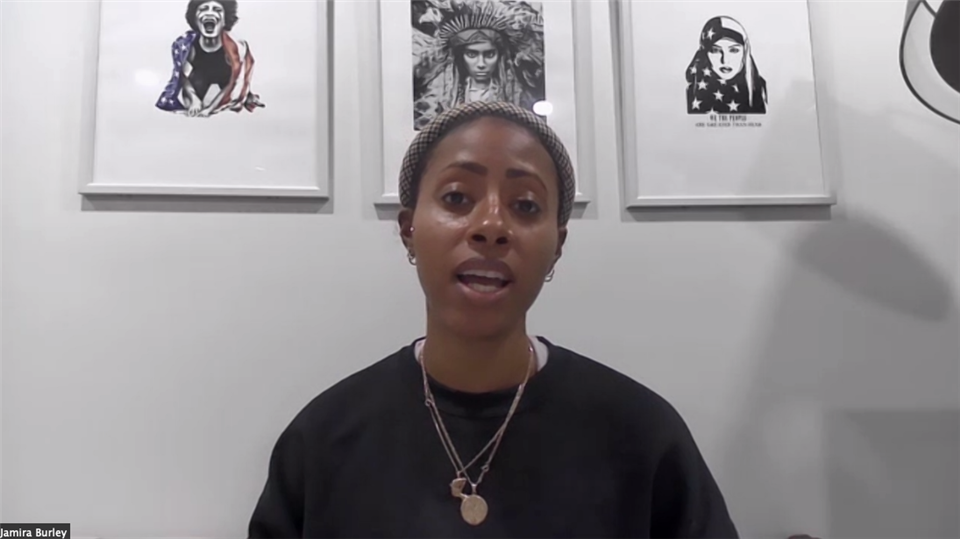In January, Winsor was pleased to welcome social justice advocate and speaker Jamira Burley to join the weekly all-school virtual assembly. Recognized by the Obama White House as a “Champion of Change,” Ms. Burley is a 2020 Oprah Magazine Visionary and a Forbes “30 Under 30” honoree. Ms. Burley’s also paid a virtual visit to Winsor in August, joining faculty and staff for an empowering session before the start of the 2020-2021 school year.
The heart of this weekly assembly with students was centered around the idea that youth can be the change, but “it’s on us.” Before Ms. Burley spoke, students shared reflections on the topic.
First, we heard from the Lower School club “This Book Is Anti-Racist.” The club started as an online Summer@Winsor class where students encountered a “buffet” of ideas about race, identity, systemic racism, and action. Following the framework of This Book Is Anti-Racist, club faculty advisor Ms. Uhre used author Tiffany Jewel’s journaling prompts to guide student reflection and discussion.
Club member and Class III student Theo said, “Some main themes that I learned from our club are what microaggressions are and how to spot some in society. We also discussed how privilege does not mean that you have not had to work hard, it means there are some things you have never had to worry about.”
Celeste from Class IV added, “My biggest takeaway from this club was learning that systemic racism is supported by people with privilege not challenging their personal prejudices…I also realized that even with good intentions, many people who are privileged because of their race struggle to understand what that really means and as a result continue to add to the problem.”
Member of the Lower School affinity group SISTERS/SOMOS also joined the conversation, with students reflecting on the importance of affinity groups for building belonging. Class III student Zora shared, “Affinity groups are important to me because when talking about issues related to or about race you can often feel invalidated because the people with whom you are sharing your experiences have not gone through the same or similar experiences.”
Echoing that sentiment, Saratu, Class III, added, “Affinity groups, in general, are important because [they] help provide a sense of community, which can be difficult to find in a world where people of color are not represented as much as white people.”
Saratu and Zora then introduced Ms. Burley as the featured speaker, citing her beginnings in youth activism. At the age of fifteen, Ms. Burley’s brother was murdered, a victim of violence in their own community. In response, Ms. Burley created an anti-violence program at her school and succeeded in lowering the rate of violence in her community by nearly 30%.
Today, Ms. Burley is Head of Youth Engagement and Skills for the Global Business Coalition for Education. In her role, she works with youth around the world, agencies, leaders in business, and governments to devise and implement ways to engage, educate, and activate young people.
Using personal experience and current events, Ms. Burely illustrated how youth have always been at the forefront of change throughout history, and went on to discuss ways to do the work in order to drive change and create the world we need. She encouraged getting involved with and supporting organizations that focus on the fight for equity, inclusion, and justice, including her two favorite, the NAACP and Color of Change. And she offered suggested reading for gaining a deeper understanding of these issues, including “anything written by Toni Morrison” and three books in particular:

